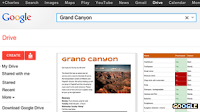ABC News, by Alan Farnham, April 25, 2012
 |
Software developer Valve Corp in Bellevue, WA, has 300 employees
and not one manager or boss. (Value Corp)
|
Video game
and software developer Valve Corp, in Bellevue, Wash., has 300 employees--but
not a single manager. How to they do that? What's it like to work in a
boss-free zone? And what other companies share Valve's approach to
non-management?
Valve's
website proclaims: "We've been boss-free since 1996. Imagine working with
super smart, super talented colleagues in a free-wheeling, innovative
environment—no bosses, no middle management, no bureaucracy," just highly
motivated peers coming together to make "cool stuff" without anybody
"telling them what to do."
It would be
wrong to say that up until this week Valve kept its no-boss policy a secret, or
that its happy peers toiled in obscurity. The company gets plenty of attention,
acknowledgement and feedback from customers, suppliers and reviewers for the
best-selling games it makes.
The calls
aren't coming from would-be game buyers. They're coming from doctors and
lawyers, clerks and car mechanics asking either "Can I go to work for you?
Boy, I hate my boss" or "Can you teach our organization how to do
what you do--get by boss-free?"
All of this
attention, says Valve's Greg Coomer, has come as something of a shock.
"Surprising," he calls it. "We've been hearing from people well
outside our usual audience, from the UK, even from the public sector."
As its
handbook makes clear, Valve's approach isn't for everyone. The U.S. Army, for
instance, is never going to embrace no-boss-ism. Nor, probably, says management
expert and business author Geoffrey Colvin, could FedEx--or any other business
that employs tens of thousands and has to function like a Swiss watch, day
after day, with precision and predictability.
Coomer
agrees. "We know we're unique," he says. But he adds, "We
wouldn't advise others against trying it. We're very interested to see others
applying it to their organizations."
He says
it's taken Valve every day since its founding in 1996 to make its system work.
But work it does, judging by results. The company is to video game distribution
what Apple's iTunes is to music. Its best-selling games series include
Half-Life, Counter-Strike, Left 4 Dead, and Portal. In 2010 privately-held
Valve announced it had in excess of 30 million active user accounts.
"Welcome
to Flatland," says the handbook, referring to Valve's non-hierarchy. It
goes on to explain that hierarchies are great for maintaining predictability
and repeatability, but maybe not so good for an entertainment company trying to
manage some of the most "innovative, talented people on Earth."
Telling people like that "to sit at a desk and do what they're told
obliterates 99 percent of their value."
Employees
get to vote on their assignments. If they hear of a project they want to join,
they literally vote with their feet and with their desks, which all have
wheels. They unplug their computers, push back from the wall, and wheel
themselves to whatever new project they want to join.
There's a
system for reviewing their work and for assigning blame and praise. There's a
system for tweaking compensation. But it all plays out without what most
long-suffering office schlubs would consider top-down authority. For a full
(and vastly entertaining) description of how Valve accomplishes this trick, see
their handbook.
The closest
Valve gets to having bosses are people called Team Leads. Says the handbook,
"Often, someone will emerge as the 'lead' for a project. This person's role
is not a traditional managerial one." They serve as clearinghouses of
information, "keeping the whole project in their head at once, so that
people can use them a s a resource." When the project disappears, so does
the Team Lead.
Is it
possible to get fired? You bet, and Valve employees certainly have been, says
Coomer. But the reason has never been for an honest screw-up. Valve from time
to time has hired people who, by temperament, found it frustrating or
impossible to work within so gossamer a structure.
He freely
allows that not having bosses has its downside. The handbook, in fact, has a
section headed "What is Valve Not Good At?" Number 1 on the list:
helping new people find their way. After that comes: mentoring people,
disseminating information internally, and missing out on hiring people of
talent who simply need to work within a more traditional structure.
Management
expert Colvin, author of "Management Strategies for Difficult Times,"
says he can think of only two other companies that do business the Valve way:
Fabric innovator W.L. Gore, where, he says, not only is the organization flat
but people's business cards list no title (just their name, phone n email).
"This
is the company where somebody once said, 'To see if you're a leader, call a
meeting and see if anybody comes.'" And the other boss-less company? A
Brazilian outfit called Semco.
Related Article:
"The New Paradigm of Reality" Part I/II – Feb 12, 2011 (Kryon channelled by Lee Carroll) (Subjects: Egypt Uprising, Iran/Persia Uprising, Peace in Middle East without Israel actively involved, Muhammad, "Conceptual" Youth Revolution, "Conceptual" (without a manager hierarchy) managed Businesses, Internet, Social Media, News Media, Google, Bankers, Global Unity,..... etc.)


















